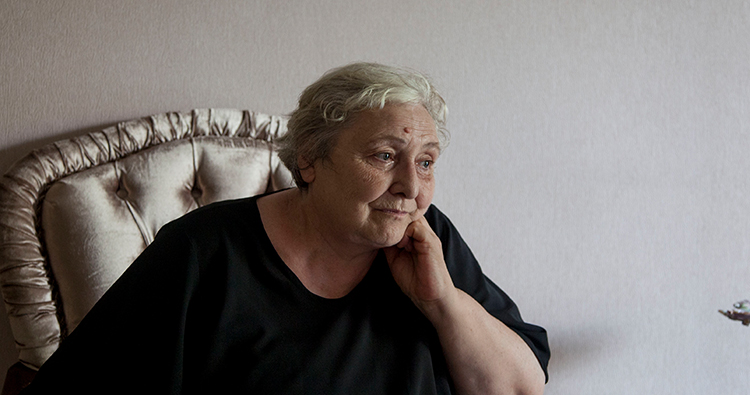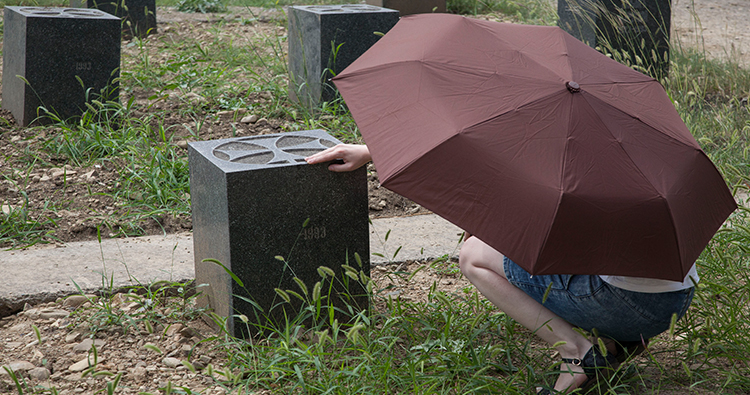Red Cross Committee aims to return bodies of Abkhazian war victims back home

Bela Zaldastanishvili, who lost two sons and two brothers on a civilian flight during the War in Abkhazia. Photo: Nino Alavidze/Agenda.ge
The International Committee of the Red Cross (ICRC) chaired a meeting regarding the search for people who went missing during the 1992-93 armed conflict in Abkhazia on December 4, in Yerevan.
The coordination mechanism is comprised of Georgian and Abkhaz participants who are seeking the 2,258 missing people.
"Since the establishment of the coordination mechanism, the mortal remains of 431 people have been found, out of which 148 were identified and handed over to their families for a dignified burial," said Nicolas Fleury, the ICRC operations coordinator for Europe and Central Asia, who chaired the meeting.
 Photo: Nino Alavidze/Agenda.ge
Photo: Nino Alavidze/Agenda.ge
"In early 2019, we’re willing to help more families to receive an answer on the fate of their loved ones, after years of unbearable waiting. Such progress is possible thanks to the relentless commitment of all the participants to this strictly humanitarian process, along with involvement of local experts whose forensic skills are being built in line with international standards."
Besides an update on the progress made in 2018, discussions in Yerevan also underlined the urge to search for information about possible burial places and ongoing challenges related to the identification process. The participants agreed to increase their efforts in the collection and exchange of information required for continuation of the search process.
Under international humanitarian law, families have the right to know what happened to their missing loved ones. The coordination mechanism to clarify the fate of people unaccounted for during the conflict of 1992-93 was established in 2010. The ICRC provides support to the mechanism, including its technical expertise, in its capacity as a neutral humanitarian organisation.
 Tweet
Tweet  Share
Share